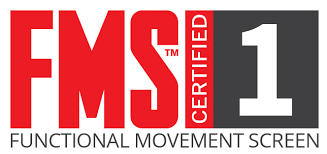Physiotherapy in Newcastle
Experience our unique and wholistic approach to Movement Restoration and Performance Rehabilitation. We draw from advanced training in Physiotherapy, functional movement, exercise science, Strength & Conditioning and Pilates. We’ve integrated them so that the voids in one are filled by the strengths of the others. In doing so we have created what cannot be described as one or a combination of them, rather a unique and truly wholistic approach to movement health, function and performance.
Expect more from Focus. The outcome of real rehabilitation is a return to function, performance and sustainable athleticism.
Our System of Movement Restoration and Performance Rehabilitation is unique to Focus Movement Therapy. We function on a continuum of care from pain and dysfunction to function and performance. This corresponds closely with our treatment strategies that include Manual Therapy, Restorative Exercise and Strength Training. We place significant emphasis on the assessment. That way your entry point for treatment is accurate and we get you moving in the right direction swiftly and effectively.
A Systematic Evaluation. Each time, every time.
The human body is more than the some of its parts. Pain does not always implicate tissue damage or structural pathology. Areas of the body seemingly distant from the area of pain can be the driver of your pain.
“Are you moving poorly because you’re in pain? Or are you in pain because you’re moving poorly?”
– Gray Cook
This is why a history and systematic evaluation of posture and movement is warranted every time. It is also why we spend up to 60 minutes on each initial consultation (including treatment time). We identify all restrictions and deficits in movement control, prioritise them and then formulate a plan to address them. This way we get to the source of your dysfunction fast. Yes, we treat pain but expect us to dig deeper and address its cause.
Treatment: Manual Therapy with Movement
Following the assessment selection of treatment is easy. Our assessment removes treatment bias. We don’t use techniques because ‘it worked for someone else’ or because we are comfortable with particular methods. We choose the right tool for the right job. Expect all our Manual Therapy techniques to produce a significant change within session. If they don’t, we own it, reassess and change tact accordingly.
Treatment at Focus typically includes motor control strategies that progress into strength. Effective Rehabilitation returns you back to being able to Pull, Push, Hinge, Squat, Lunge and Carry against load. This is because everything physical in life involves a combination of these movements. We need to load to be able to withstand load. What we do is show you how to maintain integrity under load.
Treatment Strategies we use include:
Manual Therapy
- Soft Tissue Massage
- Instrument Assisted Soft Tissue Mobilisation
- Advanced Dry Needling
- Joint Mobilisations and Manipulations
- Watson Headache Assessment & Treatment
We use Manual therapy to address mobility restrictions and tissue quality before reinforcing our changes with movement strategies. You should expect significant changes within each session. If there is no change we are first to acknowledge it, reassess and change tact.
Restorative Exercise
- Neurodevelopment kinesology
- Corrective exercise
- Pilates
This is a critical component in rehabilitation that we excel at and is often missed. In our system, Manual Therapy must be followed by a corrective exercise strategy to ensure results “stick”. The exercise we get you to do are prescriptive for your dysfunctions and stage of rehabilitation and not based on protocol. We do expect them to be done as we plan to progress in the next session rather than ‘chase or our tails’.
Strength Training
- Functional Training
- Progressive loading and resistance training
Reloading movement patterns after they have been restored is essential for ensuring a durable return to your activities. Put simply, you need to show integrity under load so that you can withstand load. The load depends on the requirements of the activities you wish to return to.
We DO NOT use:
- Ultrasound Therapy
- Interferential
- Tens
- Heat packs
Why? Put simply, it’s because these treatments have been shown to be one of the following: ineffective, only offer symptomatic management (they may be useful for home), no better than rest.

